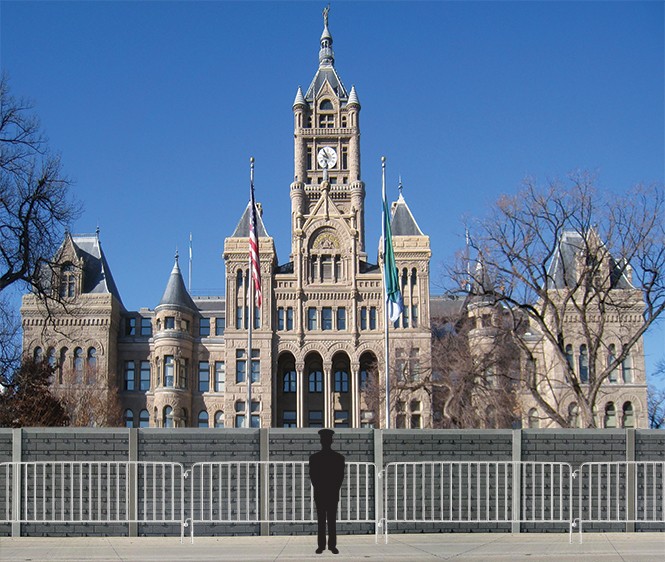
Getting an interview with the experts who manage Salt Lake City's watershed divisions or signs and markings division has become a lot like getting a sit-down with a movie star: It is possible, but you have to go through a handler.
In most branches of government, that person is called a Public Information Officer, or PIO. While considered a public servant and paid by public dollars, this person often walks a tight wire attempting to balance serving the public versus serving the elected official who signs his or her paychecks.
Joel Campbell, an associate professor of journalism at Brigham Young University, says the employment of public-relations experts by government entities has been on the rise for years, and is becoming more prevalent in Utah.
"They always want to control the message, and I guess that I would disagree with that," says Campbell. "I think policies that would tend to make the mayor and his staff control everything that comes out of city hall are really contrary to the idea of public information."
Linda Petersen, a local freelance journalist, has helped lead a nationwide effort to call attention to the rise of PIOs in government whose primary job isn't to help the press, but to make the entities they work for look good.
Petersen notes that these PIOs often soothe the press' concern by telling them that their job is to help, and that they'll streamline information and help direct reporters to the correct people.
But, really, what they're telling their bosses is that they're corralling and controlling the media, she says. "The government has now somehow, across the board, thought that part of their role or one of the employees' roles, is to make them look good, and therefore, everything has to be sanitized and scrubbed before it meets the public," Petersen says. "The idea of a free press and dialogue with government—it died somewhere in the past few years, and nobody noticed."
David Everitt, Salt Lake City Mayor Ralph Becker's chief of staff, says the city uses PIOs to help reporters be more efficient. But the dual roles of ensuring that light is shining on the government while simultaneously guarding the city and its mayor's image can clash.
This conflict became evident last week when Art Raymond, Becker's spokesman, was placed on paid leave when it was revealed that Raymond had been anonymously advocating for his boss in the comments section of The Salt Lake Tribune's website.
Everitt says he believes Raymond—in his duties as a PIO—is responsive to the media.
But Raymond's anonymous comments, Everitt says, "raises questions about judgment reflecting the approach and the tone and tenor that Mayor Becker really expects of us all."
Concerned by the growing use of public information officers, Kathryn Foxhall, a Washington, D.C.-based freelance writer, has organized journalism-advocacy groups around the issue. In July 2014, 39 organizations, including the Society of Professional Journalists, sent a letter to President Barack Obama that outlined concerns with PIOs.
The letter calls the use of PIOs and public affairs offices a form of "censorship—an attempt to control what the public is allowed to see and hear."
Foxhall says that most reporters don't have any problem with a person installed in government who is there to help facilitate the official story. But when PIOs begin placing blanket restrictions on which public employees are allowed to speak to the press, information is suppressed, and the public loses out.
"It's censorship that has become a cultural norm," Foxhall says. "And people in power have just jumped on it, because we ... as a society or we as a press have not condemned it for what it is, which is information control."
Luke Garrott, the chairman of the Salt Lake City Council who is running against Becker for mayor, says that during his eight years on the council, he's found it "quirky and annoying" that all media requests are funneled through a single individual.
"What happens there is, more often than not, you get spin on a story that is made for public consumption in the most benign way that doesn't have much information," Garrott says. "That's not a public-information officer position, is it? That's a PR position."
Foxhall, whose primary experience is in the federal government, says reporters were once able to call a person—or bang on an office door—to gather information. But those days are long gone, she says—and, as a result, important stories aren't being told.
"Because information control is the most powerful thing in human society, anything that can be used for information control will be used," Foxhall says. "We don't have any reasons to trust the situation."